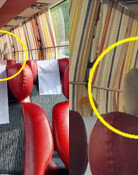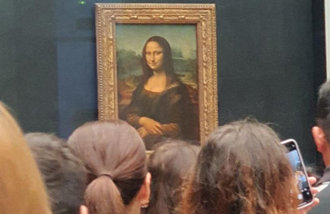[Opinion] A Self-policing System
In the novel Before and After Independence written by Lee Tae-jun, you can read vivid and realistic descriptions of scenery in front of the superintendents offices in the Japanese colonial period. According to excerpts, One day, I secretly looked at the area from the corner of post office, and a Korean soonsa (a Korean title for police officials in the colonial era), Naemura, was there. As I continued observing the spot one step back, I saw a group of countrymen who brought tree bark to the office and were examining it with public officials. Keeping a sword at his waist, his inner wear on his upper body, and with gaitered legs, Naemura was strolling arrogantly around the people holding his rod. Although the main character in the novel didnt commit any wrongdoing, he avoids passing by the superintendence office not to be caught by the soonsa, and he takes a detour to go to a fishing spot, passing over a hill without a path.
It is known that a modern policing system was first introduced in Korea in the Daehan Jeguk period (The Great Korean Empire that existed from 1897 to 1910), but the first modern police officials in the nationwide network were introduced by Japanese colonialists. The Japanese police were the foremost security organization that watched and controlled the people of Joseon to promote the secure and efficient governing of the colony. In movies and plays that are set in colonial times, a typical Japanese police officer is a menacing man intimidating the people of Joseon while wearing leather boots and holding a long sword. Older-generation mothers, who spent their childhood in the colonial period, used to scare their crying babies into stopping by saying, There comes a soonsa. If you dont stop crying, I am going to ask him to take you away. This continued to be a tactic even after independence.
Under the dictatorship era after the independence, the police were a far cry from doing their job of guaranteeing security. They were sometimes used as a spearhead in corrupt elections under government authority. Also, they were criticized for not fulfilling their responsibility of keeping the public peace, instead, being mobilized to protect the security of the political group in power. However, with the development of democracy and higher awareness of human rights, police officials have been in change. At any rate, there is no person who detours to avoid the police in fear like the main character of the novel Before and After Independence.
A new self- policing system to be introduced starting 2006 will create a new image of police officers. They will belong to the local administrative offices of counties, districts, and cities, and will be in charge of traffic safety, crime prevention, and livelihood security. A self-policing system had been the public pledge from the Kim Dae-jung administration. But once acquiring the power, it appears that the power group becomes hesitant in handing over the police and the nationwide network of public power to the local government. One local governor once said, Does it make sense that a local governor has not given the right to change a traffic sign in his or her governing area? We hope the self-policing will be established as police officials of the people, for the people, and by the people.
Hwang Ho-taek, Editorial Writer, hthwang@donga.com







